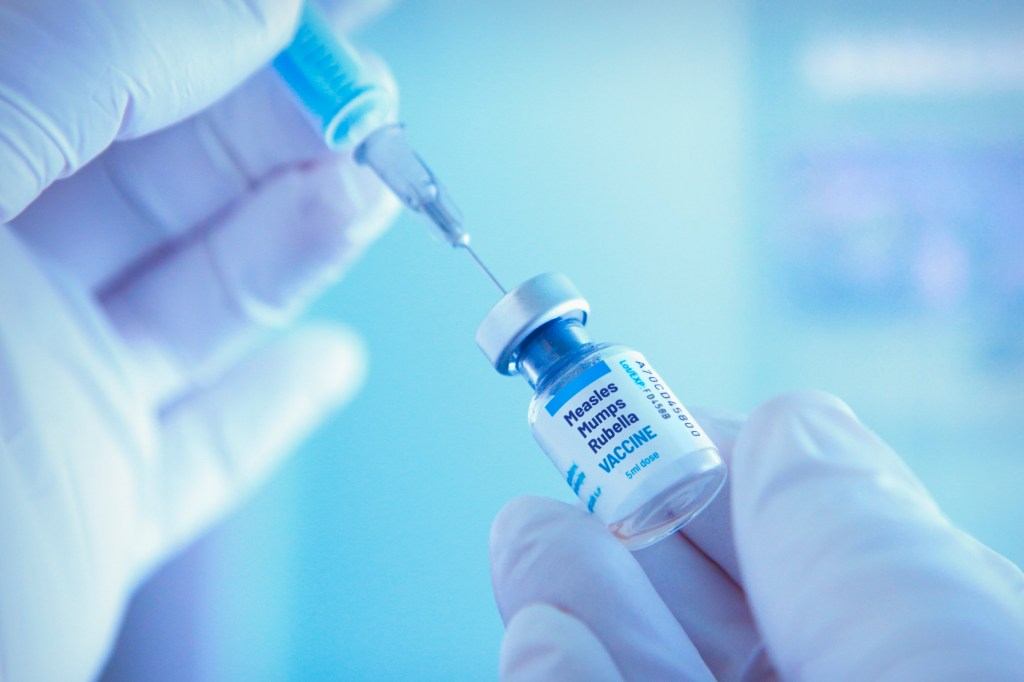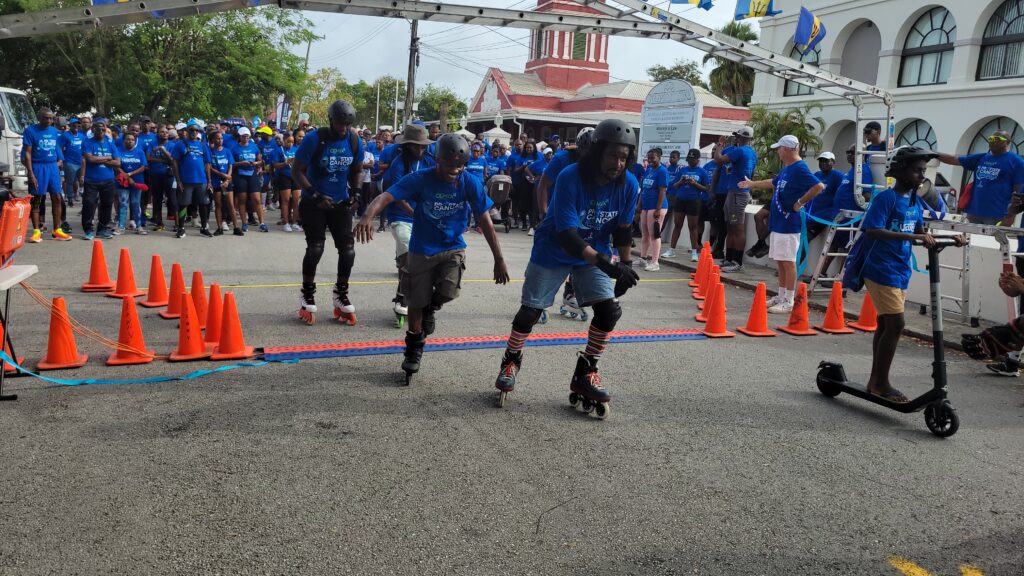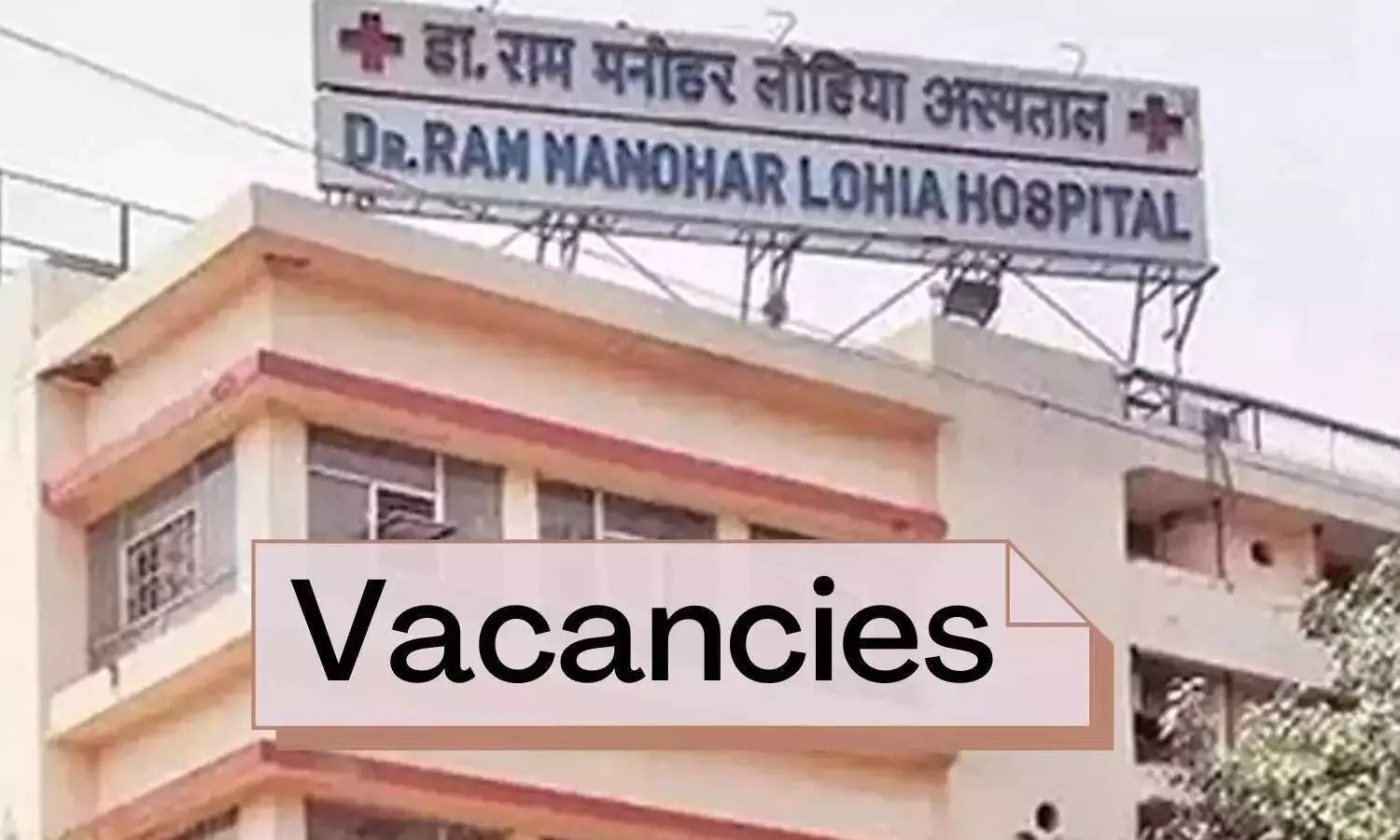Los casos de sarampión están aumentando en Estados Unidos. En el primer trimestre de este año, se registró un número de casos 17 veces mayor con respecto al promedio registrado durante el mismo período en los cuatro años anteriores, según los Centros para el Control y Prevención de Enfermedades (CDC). La mitad de las personas infectadas, principalmente niños, han sido hospitalizadas.
Y se espera que las cifras sigan empeorando, en gran medida porque cada vez más padres deciden no vacunar a sus hijos contra el sarampión y otras enfermedades como la polio y la tos ferina.
Este año, el 80% de los casos ha sido en personas no vacunadas o con un estatus de vacunación desconocido. Muchos padres han sido influenciados por una avalancha de desinformación difundida por políticos y personalidades en redes sociales, podcasts, y en la TV, que repiten falsas creencias, erosionando la confianza en la ciencia que respalda las vacunas infantiles de rutina.
A continuación, examinamos algunos mitos frecuentes de la retórica antivacunas y explicamos por qué está equivocada:
“No es para tanto”
Una idea errónea común es que las vacunas no son necesarias porque las enfermedades que previenen no son peligrosas u ocurren con muy poca frecuencia como para ser motivo de preocupación. Aunque se hayan reportado casos de sarampión en 19 estados, los escépticos acusan a funcionarios de salud pública y a los medios de comunicación de sembrar temor sobre la enfermedad sin fundamento.
Por ejemplo, una nota publicada en el sitio web del National Vaccine Information Center, una fuente habitual de desinformación sobre las vacunas, sostuvo que la preocupación creciente por el sarampión “es una exageración al estilo de ‘el cielo se cae'”. El artículo decía que contraer el sarampión, las paperas, la varicela y la gripe (también llamada influenza) era “políticamente incorrecto”.
Según los CDC, el sarampión resulta fatal en aproximadamente 2 de cada 1,000 niños infectados. Si este nivel de riesgo suena aceptable, vale la pena señalar que un número mucho mayor de niños con sarampión requieren hospitalización por neumonía y otras complicaciones serias.
Por cada 10 casos de sarampión, un niño con la enfermedad desarrolla una infección de oído que puede causar la pérdida auditiva permanente. Otro efecto extraño del virus es que puede destruir la inmunidad de una persona, y así afectar su capacidad para recuperarse de la gripe y otras afecciones comunes.
Las vacunas contra el sarampión han evitado la muerte de alrededor de 94 millones de personas, principalmente niños, en los últimos 50 años, según un análisis de abril de la Organización Mundial de la Salud (OMS). Junto con las vacunas contra la polio y otras enfermedades, se estima que las vacunas han salvado 154 millones de vidas en todo el mundo.
Algunos escépticos de las vacunas sostienen que las enfermedades que previenen ya no son una amenaza porque se han vuelto relativamente poco frecuentes en el país. (Lo cual es cierto, gracias a la vacunación). Es el razonamiento que invocó el cirujano general de Florida, Joseph Ladapo, durante un brote de sarampión en febrero, cuando dijo a los padres que sus hijos no vacunados podían seguir yendo a la escuela. “Hay mucha inmunidad”, dijo Ladapo.
A medida que esta actitud relajada hacia las vacunas convence a los padres de no dárselas a sus hijos, la inmunidad colectiva disminuye y los brotes serán cada vez más grandes y se propagarán más rápido.
En 2019, un brote de rápido crecimiento afectó a una comunidad con tasas de vacunación insuficientes en Samoa y mató a 83 personas en cuatro meses. Las tasas persistentemente bajas de vacunación contra el sarampión en la República Democrática del Congo mataron a más de 5,600 personas a causa de la enfermedad en brotes masivos el año pasado.
“Nunca se sabe”
Desde los orígenes de las vacunas, siempre ha existido un grupo que ha desconfiado porque no son naturales, en comparación con las infecciones y plagas que abundan en la naturaleza. Los miedos y dudas sobre las vacunas han ido cambiando a lo largo de las décadas. En el 1800, por ejemplo, los escépticos pensaban que las vacunas contra la viruela hacían que a las personas les salieran cuernos y que se comportaran como bestias.
En tiempos más recientes, los escépticos han vinculado las vacunas con una variedad de afecciones, desde el trastorno por déficit de atención e hiperactividad hasta el autismo y las enfermedades del sistema inmunológico. Los estudios científicos no respaldan estas afirmaciones.
La realidad es que las vacunas están entre las intervenciones médicas más estudiadas. En el siglo pasado, las vacunas han pasado por estudios científicos y ensayos clínicos masivos tanto en las fases de desarrollo como después, durante su uso generalizado.
Más de 12,000 personas participaron en los ensayos clínicos de la última vacuna aprobada para prevenir el sarampión, las paperas y la rubéola. Al probar la vacuna en un gran número de personas, los investigadores pueden detectar riesgos poco comunes, lo cual es importante porque se administran a millones de personas sanas.
Para evaluar los riesgos a largo plazo, los científicos analizan grandes cantidades de datos para identificar señales de daño. Por ejemplo, un grupo danés analizó una base de datos de más de 657,000 niños y encontró que aquellos que fueron vacunados contra el sarampión cuando eran bebés no tenían más probabilidades de ser diagnosticados con autismo que aquellos que no fueron vacunados.
En otro estudio, los investigadores analizaron registros de 805,000 niños nacidos entre 1990 y 2001 y no encontraron ninguna prueba de que las vacunaciones múltiples pudieran afectar el sistema inmune de los niños.
Pero las personas que promueven la desinformación sobre las vacunas, como el candidato a la presidencia Robert F. Kennedy Jr., descartan los estudios masivos respaldados por la ciencia.
Por ejemplo, Kennedy sostiene que los ensayos clínicos para las nuevas vacunas no son confiables porque no se compara a los niños vacunados con un grupo que recibe un placebo, como solución salina u otra sustancia sin efecto. En vez de utilizar un placebo, muchos ensayos modernos comparan las vacunas actualizadas con otras más antiguas. Esto se debe a que se considera no ético poner en peligro a los niños al darles una vacuna falsa cuando se conoce el efecto protector de la inmunización.
En un ensayo clínico de vacunas contra la polio realizado en la década de 1950, 16 niños que recibieron un placebo murieron de polio y 34 quedaron paralizados, dijo Paul Offit, director del Centro de Educación Sobre Vacunas del Hospital de Niños de Philadelphia y autor de un libro sobre la primera vacuna contra la polio.
“Demasiadas y demasiado pronto”
Varios de los libros sobre vacunas más vendidos en Amazon promueven la peligrosa idea de que los padres deberían omitir o retrasar la vacunación de sus hijos. “Puede ser que no todas las vacunas en el calendario de los CDC sean adecuadas para todos los niños en todo momento”, escribe Paul Thomas en su libro más vendido “The Vaccine-Friendly Plan”. Para respaldar su argumento, dice que los niños que han seguido “mi protocolo están entre los más sanos del mundo”.
Desde la publicación del libro, la licencia médica de Thomas fue suspendida temporalmente en Oregon y Washington.
La Junta Médica de Oregon documentó cómo Thomas convenció a los padres a omitir vacunas recomendadas por los CDC e “hizo llorar” a una madre que no estaba de acuerdo. Varios niños bajo su cuidado contrajeron tos ferina y rotavirus, ambas enfermedades que se previenen fácilmente con vacunas, escribió la junta.
Thomas le recetó suplementos de aceite de pescado y homeopatía a un niño que tenía una laceración profunda en el cuero cabelludo en lugar de darle una vacuna de emergencia contra el tétanos. El niño desarrolló un cuadro de tétanos grave y estuvo en el hospital por casi dos meses, donde tuvo que someterse a una intubación, una traqueotomía y una sonda de alimentación para sobrevivir.
El calendario de vacunación recomendado por los CDC se diseñó para proteger a los niños en los momentos más vulnerables de su vida y minimizar los efectos secundarios. Por ejemplo, la vacuna combinada contra el sarampión, las paperas y la rubéola no se administra durante el primer año de vida del bebé porque los anticuerpos que transmite temporalmente la madre pueden interferir con la respuesta inmunitaria. Y como algunos bebés no generan una respuesta inmunitaria fuerte con esa primera dosis, los CDC recomiendan una segunda dosis alrededor del momento en que los niños comiencen el jardín de infantes, ya que el sarampión y otros virus se propagan rápidamente en contextos grupales.
No se recomienda retrasar mucho más las dosis de esta vacuna ya que los datos sugieren que los niños vacunados a los 10 años o más tienen más probabilidades de desarrollar reacciones adversas, como convulsiones o fatiga.
Alrededor de una docena de otras vacunas siguen su propio esquema cronológico, con superposiciones para obtener la mejor respuesta. Los estudios han demostrado que la vacuna contra el sarampión, las paperas y la rubéola se puede administrar de forma segura y eficaz combinada con otras vacunas.
“Ellos no quieren que lo sepas”
En la introducción del nuevo libro de Ladapo sobre cómo superar el miedo en la salud pública, Kennedy compara al cirujano general de Florida con Galileo. Así como la Inquisición católica condenó al famoso astrónomo por promover teorías sobre el universo, sugiere Kennedy, las instituciones científicas reprimen a los disidentes de las vacunas por razones nefastas.
“La persecución de científicos y médicos que se atreven a cuestionar las doctrinas contemporáneas no es nada nuevo”, escribe Kennedy. Su compañera de fórmula, la abogada Nicole Shanahan, ha hecho campaña con la idea de que las conversaciones sobre los peligros de las vacunas se están censurando y que las corporaciones influyen sobre los CDC y otras agencias federales para ocultar datos.
En el podcast más escuchado en Estados Unidos, “The Joe Rogan Experience”, a menudo figuran invitados que desconfían del consenso científico. El año pasado, en el programa, Kennedy repitió el mito muchas veces desmentido de que las vacunas causan autismo.
Lejos de ignorar ese miedo, los epidemiólogos lo han tomado en serio. Han realizado más de una docena de estudios en busca de un vínculo entre las vacunas y el autismo, y no han encontrado ninguno. “Hemos refutado de manera concluyente la teoría de que las vacunas están relacionadas con el autismo”, afirmó Gideon Meyerowitz-Katz, epidemiólogo de la Universidad de Wollongong en Australia. “Es por esto que el sistema de salud pública tiende a cerrar esas conversaciones rápidamente”.
Las agencias federales son transparentes con respecto a las reacciones que pueden causar las vacunas, incluyendo convulsiones y dolor en el brazo. Y el gobierno tiene un programa para compensar a las personas si se determina científicamente que sus lesiones son el resultado de las vacunas. Alrededor de 1 a 3.5 de cada millón de dosis de la vacuna contra el sarampión, las paperas y la rubéola pueden provocar una reacción alérgica potencialmente mortal. Se estima que el riesgo de muerte a causa de un rayo durante toda la vida de una persona es hasta cuatro veces mayor.
“Lo más convincente que puedo decir es que mi hija tiene todas sus vacunas y que todos los pediatras y profesionales de salud pública que conozco han vacunado a sus hijos”, dijo Meyerowitz-Katz. “Nadie haría eso si pensara que existen riesgos graves”.
KFF Health News is a national newsroom that produces in-depth journalism about health issues and is one of the core operating programs at KFF—an independent source of health policy research, polling, and journalism. Learn more about KFF.
USE OUR CONTENT
This story can be republished for free (details).






